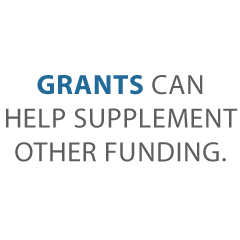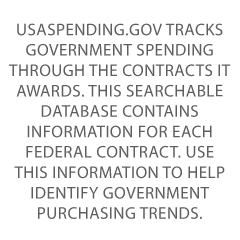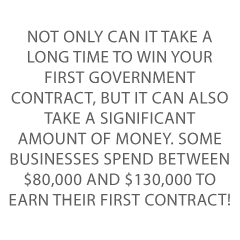It’s no secret that female business owners face unique challenges when it comes to finding funding for their businesses. There are a lot of options available, but it seems that whenever a woman seeks funding advice, they get a generic answer. Usually it is something related to government grants for women. However, specific government grants for women are not as common as many think.
There Are a Number Funding Options Available for Women Owned Businesses, Including Government Grants for Women
Still, there are plenty of options. Some are designed specifically for women business owners, but most are not. From private grants to government loans, women business owners can fund their businesses and be successful if they know where to start.
Government Grants for Women and From Other Sources
All grant programs are highly competitive. Even the few government grants for women. Despite this, they are definitely worth the effort to apply, as there really isn’t a lot to lose except time. It’s free money that can supplement other funding types. Some examples include:
SBA Women’s Business Centers
In addition to helping with loans, the SBA Women’s Business Centers also help women entrepreneurs get access to other types of funding. Some lend money or award grants directly, while others help connect women entrepreneurs with financial institutions. The grants that are awarded through some of these centers could be considered government grants for women, since the SBA is a government entity.
Eileen Fisher Women-Owned Business Grant
The clothing brand Eileen Fisher hands out $100,000 per year to 10 women-owned businesses. To qualify, a woman must have at least 51% ownership, and the business must be in operation for at least three years. Also, it must bring in less than $1 million per year in revenue and have a focus on environmental or social change. This is a private sector grant.
Find out why so many companies use our proven methods to get business loans.
Amber Grant
The Amber Grant awards $500 to $1,000 per month to a woman-owned business. One of the recipients also receives an additional $10,000 grant at the end of the year. Applicants only need to tell their story and turn it in with a $15 application fee. This one is another private sector grant.
#GIRLBOSS Foundation Grant
Specifically for woman-owned businesses in fashion, music, and art, the #GIRLBOSS small business grant awards $15,000. They also offer exposure via the Girlboss website and social media platforms. Judges rate those applying on creativity, business savvy, planning, innovation in the field, need, and where they plan to work. Like the last two, this is private grant.
Cartier Women’s Initiative Award
The Cartier Women’s Initiative Award is $100,000 for first place and $30,000 for second place. They award the grant to 18 female business owners from around the world each year. Women business owners who are just getting started may qualify. Go here for the complete application information for this small business grant.
All of the finalists get to attend the INSEAD Social Entrepreneurship 6-Day Executive Program (ISEP). They will also have the opportunity to participate in workshops on entrepreneurship, business coaching seminars, and be exposed to networking opportunities. This is also a private grant.
The Small Business Administration
The SBA offers government backed loan programs, a number of which are perfect for women business owners, though not designed exclusively for women.
7(a) Loans
This program offers federally funded term loans up to $5 million. The funds can be used for expansion, purchasing equipment, working capital and more. Banks, credit unions, and other specialized institutions in partnership with the SBA process these loans and disburse the funds.
To qualify a business owner has to have a credit score of at least 680. There is also a required down payment of at least 10% for the purchase of a business, commercial real estate, or equipment. The minimum time in business is 2 years. If a business is a startup, business experience equal to two years is enough.
This is by far the most popular of the SBA loan programs. Funds are available for a broad range of projects, from working capital to refinancing debt, and even buying a new business or real estate.
504 Loans
These loans are also available up to $5 million. They can buy machinery, facilities, or land. Generally, they are used for expansion. Private sector lenders or nonprofits process and disburse the funds, and they work especially well for commercial real estate purchases.
Terms for 504 loans range from 10 to 20 years. Funding can take from 30 to 90 days. The minimum credit score requirement is 680, and collateral is the asset being financed. There is also a down payment requirement of 10%. However, this can increase to 15% for a new business.
Furthermore, there is a requirement that you be in business for at least 2 years, or that management has equivalent experience if the business is a startup.
Microloans
Microloans are available in amounts up to $50,000. They work for starting a business, purchasing equipment, buying inventory, or for working capital. Community based nonprofits handle microloan programs as intermediaries. Unlike other SBA programs, financing coming directly from the Small Business Administration.
Interest rates on these loans are 7.75% to 8% above the lender’s cost to fund, and the terms go up to 6 years. They can take up to 90 days to fund. There is a 640 minimum credit score requirement. However, the collateral and down payment requirements vary by lender.
SBA Disaster Loans
Disaster loans are available in amounts up to $2 million. They are actually processed directly through the SBA. They are available to small-business owners that have been affected by natural disasters. Terms go up to 30 years, and the maximum interest rate is 4%.
Find out why so many companies use our proven methods to get business loans.
The minimum credit score for disaster loans is 660. Collateral is necessary if the loan goes over a certain amount, usually $25,000, if it is available or when it becomes available. For a military economic injury disaster that amount is $50,000. A down payment is not necessary either way.
SBA Express loans
Express loans top out at $350,000 and have a maximum interest rate of 11.50%. Terms range from 5 to 25 years, and the SBA guarantee is less than with their other loan programs at 50%. To qualify, your credit score must be above 680. In addition, you must have a debt to service ratio of 1.1 or higher. If the loan is greater than $25,000, collateral may be necessary depending on the lender.
The turnaround for express loans is much faster. The SBA takes up to 36 hours to give a decision. Necessary paperwork for application is also less, making express loans a great option for working capital, among other things, if you qualify.
SBA CAPLine
There are 4 distinct CAPLine programs that differ mostly in the expenses they can fund. Each of them carries a maximum amount of $5 million and an interest rate that ranges from 7% to 10%. Funding can take 45 to 90 days.
The four different programs are:
- Seasonal CAPLines -Financing for businesses preparing for a seasonal increase in sales.
- Contract CAPLines -Financing for businesses that need funding to fill a contract.
- Builder’s CAPLines -Financing for businesses taking on a real estate or construction project.
- Working capital CAPLines -Financing for businesses that are struggling with a short-term slump in sales.
You must have a credit score of 680 or above to qualify for these. There is no minimum time in business requirement unless you are getting a seasonal CAPline. That one carries a one year in business requirement.
SBA Community Advantage Loans
This is a pilot program set to expire or extend in 2020. Its purpose is to promote economic growth in underserved areas and markets. Decision makers can be less stringent when it comes to poor credit or low revenue if the business has the potential to stimulate the economy or create jobs in underserved areas.
Loan amounts range from $50,000 to $250,000 with a maximum interest rate of 11%, while terms range up to 25 years.
Other Loan Options for Women Business Owners
While programs like those that provide government grants for women and those offered by The Small Business Administration often work to meet the unique challenges faced by women business owners, sometimes it just isn’t enough. If your credit score does not allow you to qualify for SBA loans, these options are available as well. They tend to work well, though not specifically designed for women.
Lending Club
LendingClub functions as a peer-to-peer lender that offers mostly fixed-term small business loans. Borrowers that get loans from LendingClub generally use loans funds to buy equipment, finance growth or expansion projects, consolidate other debt, or hire new employees.
One benefit LendingClub offers with their small business loans that many others do not is access to a client advisor. This is someone to help you figure out how to best use your business loan funds, as well as how to budget loan payments.
The minimum loan amount at LendingClub is $5,000 and the maximum is $300,000. There is a minimum time in business requirement of 12 months to qualify. In addition, you must have at least $50,000 in annual sales. There can be no tax liens or bankruptcies, and you must have at least 20% ownership. They will work with a credit score that is fair or higher. A fair credit score ranges from 620 to 659.
Lendio
Lendio offers a loan-connection service that dramatically cuts the time it takes for small business owners to find the perfect loan. They do the legwork by vetting a network of competing small business lenders. Funding is fast, sometimes in as little as 24 hours.
Potential borrowers submit one application and then see offers from lenders in the network. The minimum loan amount is $500 while the maximum is $5,000,000. The business must be U.S. or Canada based and must have a business bank account. There is a minimum personal credit score requirement of 560.
Blue Vine
BlueVine offers two options for small business financing. They include lines of credit and invoice factoring. They also offer the ability to talk with a financial advisor. Their application process takes place exclusively online. The minimum loan amount is $5,000 and their maximum is $100,000. Furthermore, to be eligible you must be in business for at least 6 months, have revenue of $120,000 per year or more, and have a credit score of at least 600.
Kiva
Kiva has a unique lending model. They offer loans to businesses, but their platform is far different from than that of traditional or even other non-traditional lenders. It is sort of a cross between crowdfunding and lending. They offer loans with a 0% interest rate. That means, even though you have to pay it back, it is actually free money. In addition, they do not run a credit check at all. The only requirement is that you have to get at least 5 family members or friends to donate money for your business. Also, you have to give at least a $25 loan to another business on the platform yourself.
Grameen
Microloans are a great option when it comes to business loans for women with bad credit. Grameen is one of the few lenders that offers microloans specifically for women. The loan amounts range from $2,000 to $15,000, and they also offer financial training and support.
As a bonus, they report payments to Equifax and Experian. Consequently, these loans help borrowers build credit.
Find out why so many companies use our proven methods to get business loans.
Government Grants for Women Do Exist, but So Much More Is Available
It is possible to find government grants for women. They do exist. However, they are not the only option female entrepreneurs have. Since they are rarely enough to fully fund a business, it is good to know what else is out there.
When looking for government grants for women, start with the SBA Women’s Business Centers. They are going to be your best bet for information of this type. Don’t limit yourself, however. Try the other grant options mentioned above, and look around for others. New ones pop up every day. Know though, that complete funding will almost always require a loan or investor of some type, so keep that in mind as well.
The post Government Grants for Women and Other Funding Options for Women Owned Businesses appeared first on Credit Suite.











